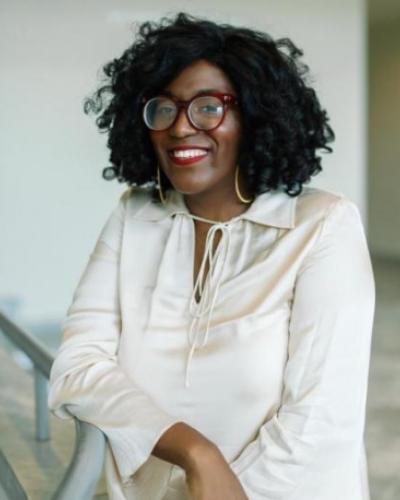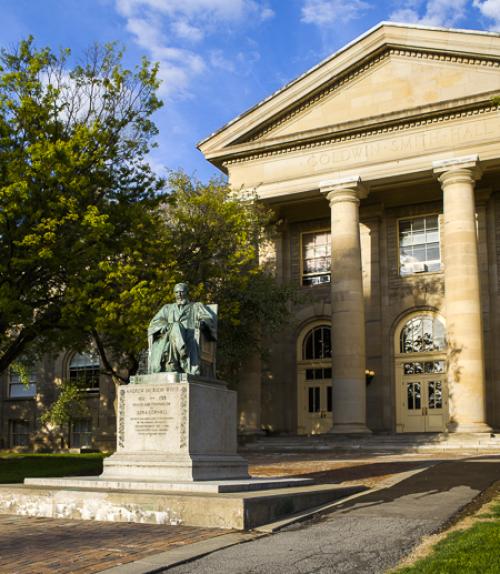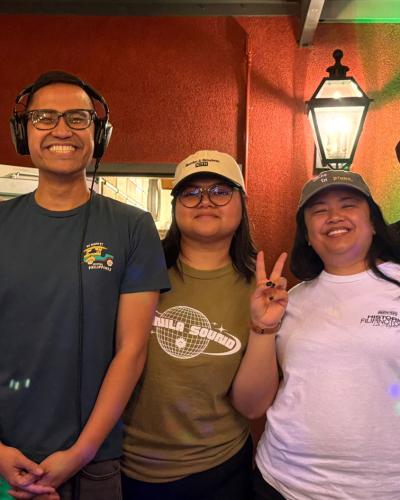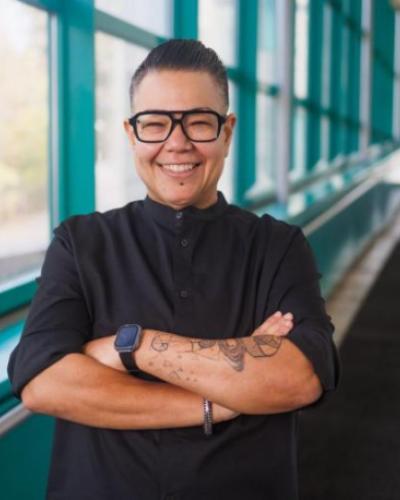Locally Grown Dance Festival explores excess with Loss, Denial and Desire: The Melodrama of the Krewe of Doberge Ball. BUY TICKETS
By Matt Morgan
For one scene in his recent collaboration with Jumay Chu, Byron Suber asks his dancers to picture the worst person they can imagine. Think of how that person acts and the ruthless way they treat people. Think of their over the top passion. Think of Mean Girls. Think of Heathers. Now, as a performer, validate that person’s emotions.
Suber, a Senior Lecturer in the Department of , grew up in New Orleans surrounded by excess: Mardi Gras, debutante balls, social and political corruption. His sister was even a runner-up for Miss Mississippi. Melodrama was part of the landscape of his youth. It was bizarre but at the same time, quite normal, he says.
Not a new theme to his work, Suber is returning to the idea of excess as inspiration for the Locally Grown Dance Festival (March 17-19, 7:30 p.m., Kiplinger Theatre), this year titled, Loss, Denial and Desire: The Melodrama of the Krewe of Doberge Ball. Using the vibrant colors and often flawed pageantry of his hometown, Suber and co-director Chu wrestle with the idea of melodrama and question who exactly is able to define excess.
“Whether it’s art or real life, what might appear as excess to somebody is real life to other people, that’s a really big class thing,” Suber says. “I’ve heard people say something is excessive when for the person experiencing it, it was incredibly real.”
Suber uses Mardi Gras costumes, carnival-inspired music and exaggerated dance technique, to create an environment that alternates between joy and despair. He wants the audience to be on edge throughout this narrative performance and, at times, uncomfortable.
“We come from a tradition of making work that challenges people and of course I’m playing with that to some degree,” Suber says. “But this work is kind of circusy. What I’m doing here is really flashy and hitting notes right on downbeat. The kind of work I usually do plays on a different physicality and interacts differently with the melody of the music.”
Jacob Hunter ’18, who will perform a solo originally choreographed and performed by Suber two and half decades ago, said authenticity was particularly important for this performance. Excess on its own is easy to dismiss. When filled with humanity, it allows the audience to empathize.
“I wanted the movement and emotion to come from a place of truth, almost like a memory you’re drawing from,” Hunter says. “That’s kind of what’s played in my head over and over: validity. I have to validate.”
Costume designer Sarah Bernstein researched photos of Mardi Gras and entertainers from the mid-20th century to get ideas for this year’s production. She ultimately found photos from a circus-themed party hosted by actress Elsie de Wolfe that she used as a jumping-off point.
“When you’re seeing it at first you’re dazzled by the color and the shapes but then realize it’s really kind of worn,” Bernstein says. “It’s got a nasty edge to it, especially when you think of Mardi Gras, there’s something twisted about it.”
Suber says this performance speaks to the roots of LGDF in that it asks the audience to come to expect the unexpected.
“There’s no way to prepare people for it except to ask them to be open to concepts of excess,” Suber says. “A kind of dark side of people’s personalities will be really apparent but there will also be texture and color in contrast to that so it’s comic at times and really unsettling at others.”
Tickets for the Locally Grown Dance festival are on sale now at schwartztickets.com.





